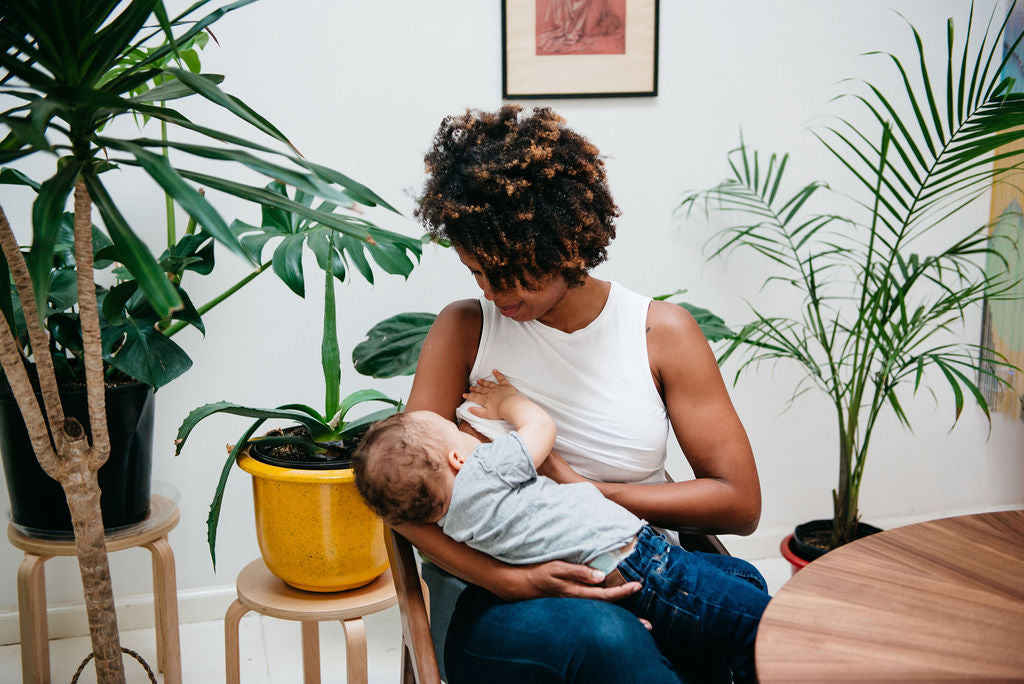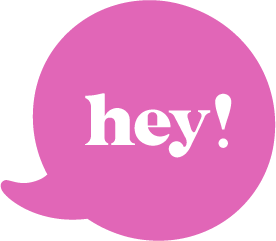
A Guide to Extended Breastfeeding
It's one of the most contentious topics when it comes to parenting. Should you breastfeed or bottle-feed, and if you breastfeed, when should you wean? Everyone has an opinion on the subject, and if you don't agree with every single one of them, then you're wrong. It can be hard to tell when to start asking questions — and you might be hesitant to ask for fear of being attacked.
I'll be the first to tell you that I've done it with both — I breastfed my first child until she was nearly two, while the second is still going strong at 20 months. If you're considering extended breastfeeding, here is my comprehensive guide on the subject. While I am no expert, I am more than happy to share my personal experiences in the hopes that it will help settle your mind, at least on the topic of extended breastfeeding.
Redeem your FREE Newborn Sample Box here!
What Is Extended Breastfeeding?
In the Western world, it's normal for a mom to breastfeed her little one until they reach their first birthday. After one year, you move into what is considered extended breastfeeding. This point is where you'll start experiencing a bit of a divide.
In places like the United States, you'll find yourself pressured to wean your little one — whether they're ready or not — after that first birthday. Around the world, extended breastfeeding is the norm with moms keeping their little ones close until they're willing to wean.
Benefits of Extended Breastfeeding
As your baby grows, they'll add new foods and drinks to their diet, but there are still plenty of benefits to extended breastfeeding.
For one, your breastmilk doesn't stop being a nutritional powerhouse just because your child reached their first birthday. As long as you're producing milk and maintain a healthy diet, your breastmilk is full of vitamins, nutrients, enzymes and even immune-boosting substances that can help your child thrive and stay healthy.
This boost can be a boon if they've started heading to day care or playdates. Anytime your body gets exposed to a bacteria or virus that could make you sick, it starts producing antibodies. Every time your child nurses, they receive those antibodies, which bolster their immune system.
Babies aren't the only ones that benefit from extended breastfeeding. It's good for you too. We already know that exclusive breastfeeding can delay the return of your period — which is a blessing if you have heavy or painful periods — and can help you shed some of your baby weight. What many people don't realize is that extended breastfeeding can even help reduce your risk of breast and ovarian cancers.
Breastfeeding for at least six months reduces your chances of developing cancer by lessening the amount of estrogen in your body and preventing ovulation.
Now, it's important to note that this doesn't have to be with a single child unless you're only planning on having one. The benefits of extended breastfeeding, when it comes to reducing cancer risks, are cumulative.
Challenges of Extended Breastfeeding
Extended breastfeeding might feel like the most natural thing in the world for you, or it could be the hardest thing you've ever done. What sort of challenges could derail your goal of breastfeeding for longer than a year?
Public Opinions
Everyone and their brother is happy to give their opinion about how you're raising your child. It's easy to say that you can ignore them by just smiling and nodding while you do whatever you were going to do anyway, but it wears on you after a while. They get even pushier after your child reaches their first birthday if you live in the Western world.
I always found that dealing with the public was the worst part of extended breastfeeding. Sometimes you can discourage the Nosy Nellies by being sarcastic — like throwing a blanket over your head when asked to cover up — but in other cases, that just makes them pushier. The best advice I can offer for dealing with the public is simply to grin and bear it.
It sounds disingenuous, I know, but people who'll give you crap about your parenting choices won't change their minds. Just smile and nod until they go away. The best way to deal with them is to avoid engaging.
Weaning
I tend to approach the weaning process with both anticipation and dread. I'm a big believer in child-led weaning, which means letting my girls choose when they want to quit breastfeeding. That's why my youngest, now 20 months old, is still going strong with breastfeeding. It's part of our nightly routine and helps her get comfortable enough to go to sleep.
One of the biggest arguments against extended breastfeeding is that it will take longer for your child to wean, and the act will be more difficult. I've personally never had a problem with child-led weaning. My oldest is six now and decided that she had finished with breastfeeding right around the two-year mark.
I'm confident that my youngest will do the same when she's decided she's finished with breastfeeding. You only run into problems when you try to convince them to wean before they're ready.
Teeth
This challenge is one thing that scares people away from the idea of extended breastfeeding — teeth. I can't tell you how many people I've heard tell me that they're going to quit breastfeeding as soon as their baby starts cutting teeth, no matter how early that might be. Infants can begin cutting teeth as early as six months, so you'll have to contend with this if you're planning on hopping this hurdle.
Yes, your baby will cut teeth. Yes, they will bite. You can't control either of these things, but what you can control is how you react to the bite. Don't get mad, don't yell and no matter what the internet tells you, don't bite your kid back. All you have to do is simply take them off the breast. That's it. Even young ones can learn that biting means that mom takes the food away.
Give them a few moments to calm down, then try again. You'll be surprised how effective a little break can be, especially for a hungry baby.
Teeth are inevitable, but they don't have to be the metaphorical straw that breaks the nursing camel's back. Be patient, try not to yell and don't let it scare you away from extended breastfeeding.
Sleep Issues
When I started breastfeeding, we co-slept — first out of necessity because our first place was too small to fit both a bed and a crib, and then because it was just easier than getting out of bed multiple times during the night. Co-sleeping is a great way to bond with your baby while helping you get a little extra sleep at night. After a while, especially once you get into the realm of extended breastfeeding, you'll start wanting your bed back.
If your kids are like mine and kick all night like they're in a chorus line, you'll want that to happen sooner rather than later. Sleep can be an issue for everyone involved once your kids start getting a little larger. What began as a way to get more sleep ended up biting me in the butt.
I did notice that the closer you get to their natural child-led weaning, the less they'll want to breastfeed at night. It turns into something you share during the day, and maybe at bedtime, but they'll sleep through the night and won't wake you up as they get closer to the end of your breastfeeding journey together. Sleep deprivation is part of being a parent, and that doesn't always end when your little ones hit their first birthday. Don't let it scare you off.
Enjoy the Benefits of Extended Breastfeeding — Or Don't, It's Up to You
Extended breastfeeding has turned out to be the best thing for my girls and me, but I know it's not right for everyone. Breastfeed them for one day, six months or three years — or don't breastfeed at all and use formula instead. Whatever you choose is fine as long as you're feeding your baby.
If you need some help, don't be afraid to reach out to those around you. Raising a child isn't easy, and breastfeeding is just one of the many decisions you'll have to make on your quest to raise a happy, healthy and functional human being.
Written by Jennifer E. Landis. She shares her two cents on parenting, healthy living, and life in general on her blog Mindfulness Mama.
